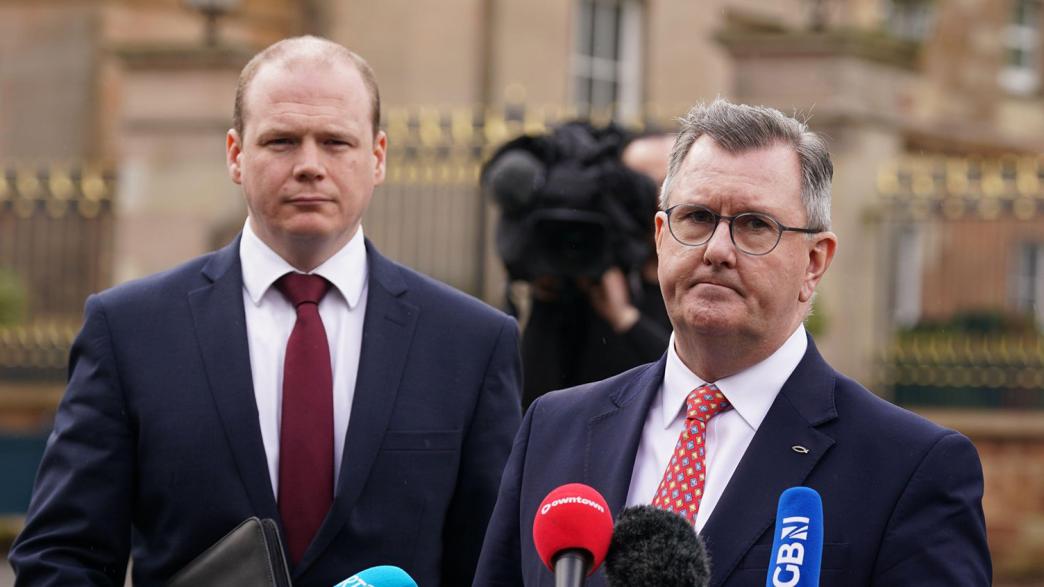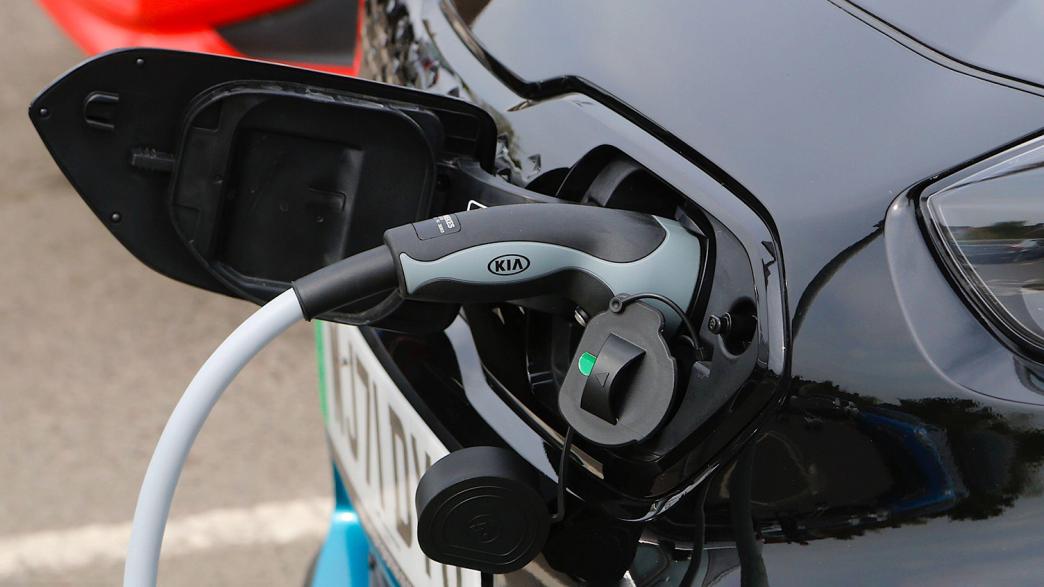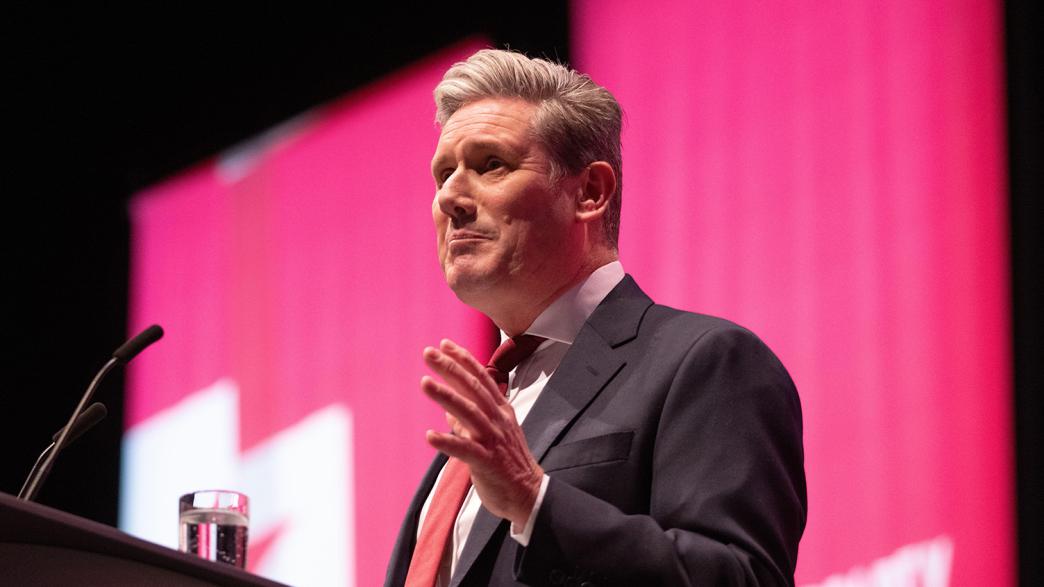Despite Horizon, Brexit will continue to haunt Rishi Sunak
Improvements in the UK's relationship with the EU haven't brought an end to the government's Brexit headaches.

The good news for Rishi Sunak is that the diminishing power of the European Research Group has given him greater freedom to be more pragmatic on Brexit The bad news, says Jill Rutter, is that the prime minister’s Brexit hangover shows now sign of lifting
Rishi Sunak inherited three Brexit headaches – sorting out the Northern Ireland protocol, choosing what to do with the Retained EU Law Bill and deciding what to about immigration. The prime minister deserves credit, along with foreign secretary James Cleverly, for thawing the frosty relationship that developed between their predecessors and their EU counterparts. This paved the way for the agreement of the Windsor Framework 12 The Windsor Framework - GOV.UK (www.gov.uk) – and the EU will have seen their faith in Sunak’s ability to deliver his party rewarded when the rebellion 13 Windsor Framework: Government wins Brexit deal vote - despite Tory rebellion and DUP anger | Politics News | Sky News led by two former prime ministers fizzled into a demonstration that the European Research Group (ERG) had been defanged.
Sunak can point to the benefits that have come from the deal. At the press conference on the Windsor Framework, European Commission president Ursula von der Leyen raised the prospect that the agreement would open the way for the UK to join the EU’s major research programme – Horizon Europe, which the EU blocked while the UK unilaterally held up implementation of the Northern Ireland protocol. The announcement
14
Prime Minister's Office, 10 Downing Street, Department for Science, Innovation and Technology, The Rt Hon Michelle Donelan MP, and The Rt Hon Rishi Sunak MP, UK joins Horizon Europe under a new bespoke deal, 7 September 2023, www.gov.uk/government/news/uk-joins-horizon-europe-under-a-new-bespoke-deal
that the UK now has agreed terms for associate membership of Horizon Europe is a welcome relief to the science and research community which has been lobbying hard for that outcome, valuing the stability of longer-term funding and its boost to international collaboration. The government claims it has negotiated good terms to reflect UK delayed participation.
But while the Windsor Framework has reset the UK’s relations with the EU, Sunak has plenty of Brexit problems that remain unsolved.
The Windsor Framework has failed to restore devolved government in Northern Ireland
Resolving the protocol was supposed to end the stalemate in Northern Ireland, but there has been no positive movement in the six months since the Windsor Framework was unveiled. The DUP claims it is discussing with government on how to meet its concerns over the framework – but nothing substantive has emerged to persuade them to resurrect Stormont, with the first anniversary of the end of the caretaker government approaching (and the full executive already in abeyance for over 18 months). It is hard to see how the UK government could offer anything of substance that is compatible with the framework and the Good Friday Agreement.
The government also needs to ensure the new agreement with the EU is implemented. It is much easier to sign up to the framework than implement it – and the EU will be watching closely to ensure that the UK is on track to meet its obligations.

On other areas the Commission continues to take a hard line
On a number of issues there is not much sign that the Commission is keen to cut the UK any slack. Although some member states (and their financial institutions) are keen for access to UK derivatives clearing to continue after the initial equivalence decision expires in June 2025, the Commission has so far held firm that the EU needs to develop its own clearing capacity and should not depend on a non-member state. It is still not clear where this will end up.
An earlier looming deadline is on rule of origin for electric cars, where more relaxed rules were agreed for a period in the Trade and Cooperation Agreement (TCA) to give car makers in Europe and the UK time to reduce their dependence on foreign content, notably batteries. That relaxation expires at the end of this year, meaning electric vehicles could face 10% tariffs. Car makers on both sides of the Channel have been lobbying for an extension but so far the Commission has been reluctant to move in the face of pressure. This may go to the wire – but if it does, manufacturers will point out that this disrupts their normal business planning cycles. But this is evidence that even where there is clear short-term mutual benefit, the Commission appears determined to stick to the letter of the deal agreed with Boris Johnson rather than reopen and renegotiate.
The Commission is already downplaying 16 Post-Brexit trade deal means ‘inevitable’ business costs, says EU – EURACTIV.com the significance of the review of the Trade and Cooperation Agreement implementation due in 2025 (five years after the TCA came into force). This matters less for Rishi Sunak but many businesses (and the Labour Party) have held out some hope that this would be the route to knock some of the hard edges off the Johnson–Frost deal. Ultimately, though, those decisions will be for the next government and for a new Commission responding to the priorities of member states.

The UK’s sunset of EU law has been postponed – but problems remain
In a second victory for pragmatism, the government backed away from the proposal to sunset all unsaved Retained EU Law (law with EU origins which was transferred onto the UK statute book before Brexit) by the end of the year and switched the default. But it retained other provisions which mean the courts should stop applying EU principles and precedents and indeed are encouraged to depart from EU precedents. That means a big exercise is underway in Whitehall for ministers to restate any principles that they want to retain before the end of year deadline. What sounds like a technical exercise can degenerate into a political bunfight – as was illustrated when ministers needed to reinstate protections to allow women to continue to rely on a favourable EU rule when they seek equal pay.
This is likely to be the first of many such “restatements” – each pointing up a consequence of the impact of losing EU precedents from UK jurisprudence. And, as with the original sunset, the big risk is that departments miss issues and only find out when hit in the face by an unexpected judgment from the domestic courts.

The government agreed to ditch the sunset from the bill and instead provide parliament with a list of all REUL the government intends to repeal.
Immigration has not gone away as an issue
The prime minister has so far been rebuffed in his attempts to get the EU to regard his priority of stopping small boat crossings into the UK as a shared problem. But the PM’s bigger migration problem continues. He looks set to face a row over the visa concessions that may be necessary to land an India trade deal – at a time when he is facing pressure from the New Conservative wing The New Conservatives - New Conservativesof the party to return to the objective of cutting annual net migration to below levels seen before Brexit – the original David Cameron promise. While the UK labour market appears to be loosening as the impact of interest rate hikes feeds through, it is still not clear that critical sectors – in particular agriculture and hospitality – have adapted to the loss of access to easily available EU labour.
Meanwhile, the Home Office has failed to provide definitive guidance on how it proposes to handle EU citizens making the transition from pre-settled to settled status, after it lost a judicial review brought by the watchdog the Independent Monitoring Authority. Instead, it has automatically given people with pre-settled status two extra years to establish their rights, but that only delays rather than resolves the problem (and does not necessarily help people in precarious work who cannot provide the necessary documentation).

Brexit is getting in the way of the PM’s inflation priority
The EU has reason to be sceptical about the UK’s ability to implement new post-Brexit border controls. The government has finally confirmed rumours that it is yet again delaying the imposition of regulatory controls at the GB frontier, due to be phased in this October. The government admitted that one concern was cost to businesses complying with the new controls. Another concern may have been the risk that some EU exporters would just stop supplying the UK market, leading to more shortages in fresh produce. The government admitted that its revisions to its border operating model would “save” businesses £520m compared to the one that it initially planned, an indication of the scale of the costs of border bureaucracy which now include the added costs of importing from the EU.
That, of course, perpetuates the asymmetry between the treatment of EU businesses looking to move goods into the UK and GB exporters to the EU – one reason why the National Farmers’ Union are furious about the change. The latter have faced border checks and associated costs since day one of Brexit. They also have to comply with EU standards even as the UK increasingly seems prepared to accept EU certification as valid in the UK – as evidenced by their decision to continue to accept the UKCE mark.
Meanwhile, new polling suggests that the public sees Brexit as adding to the cost of living. Of those who voted Conservative in 2019, only 12% now agreed with the statement that “the cost of living is now lower than it would have been without Brexit” while 51% disagreed.

According to new polling, only 12% of people who voted Conservative in 2019 believe that the cost of living is now lower than it would have been without Brexit.
The good news for the PM is that Labour is unlikely to make much of its post-Brexit travails
In the run-up to a general election this might all seem fair game for an opposition. Labour could point out that far from done, we are now in season eight of the never-ending Brexit box-set and still with no resolution of key plotlines in sight.
Labour mutters sotto voce that it – unlike the government – will find a magic key that “makes Brexit work”. But as the general election approaches, the good news for Rishi Sunak is that Keir Starmer's party is still very reluctant to make huge political capital out of the government’s attempts to manage the Brexit fallout lest it discourage the Red Wall Leave voters who backed Boris Johnson in 2019, but who are now seen as critical to Labour victory at the next election. Sunak’s Brexit problems may not be easing, but he will at least hope that Labour continues to give him an easy Brexit ride once the general election campaign is underway.

- Topic
- Brexit
- Country (international)
- European Union
- Political party
- Conservative Labour
- Position
- Prime minister Leader of the opposition
- Administration
- Sunak government
- Public figures
- Rishi Sunak
- Publisher
- Institute for Government